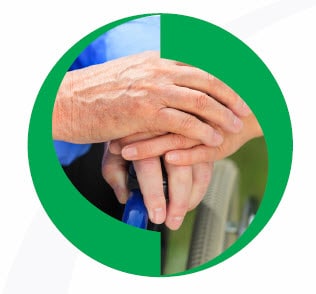Caregiving for Family and Friends — A Public Health Issue

Caregiving is an important public health issue that affects the quality of life for millions of individuals. Caregivers provide assistance with another person’s social or health needs. Caregiving may include help with one or more activities important for daily living such as bathing and dressing, paying bills, shopping and providing transportation. It also may involve emotional support and help with managing a chronic disease or disability. Caregiving responsibilities can increase and change as the recipient’s needs increase, which may result in additional strain on the caregiver.1,2,3
Caregivers can be unpaid family members or friends or paid caregivers.1,2 Informal or unpaid caregivers are the backbone of long-term care provided in people’s homes. In particular, middle-aged and older adults provide a substantial portion of this care in the US, as they care for children, parents or spouses.2,3 These informal caregivers are the focus of this brief.2,3
Caregiving can affect the caregiver’s life in a myriad of ways including his/her ability to work, engage in social interactions and relationships, and maintain good physical and mental health.1 Caregiving also can bring great satisfaction and strengthen relationships, thus enhancing the caregivers’ quality of life. As the population ages and disability worsens, it is critical to understand the physical and mental health burden on caregivers, the range of tasks caregivers may perform, and the societal and economic impacts of long-term chronic diseases or disability.2 Gathering information on these topics enables us to plan for public health approaches to assist individuals as well as their communities and maintain the health of caregivers and care recipients.1


































No hay comentarios:
Publicar un comentario